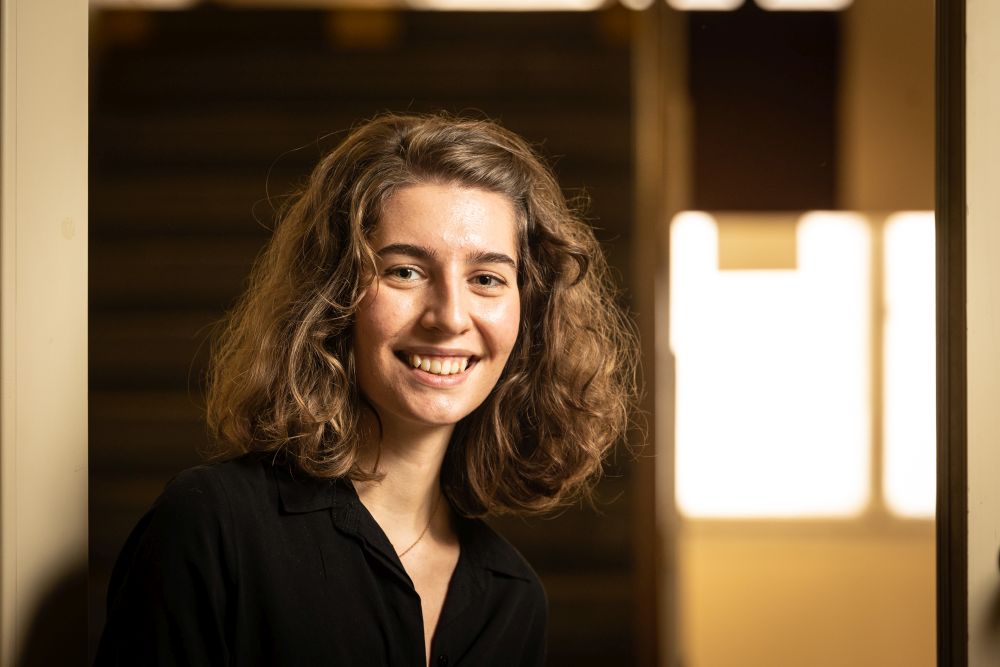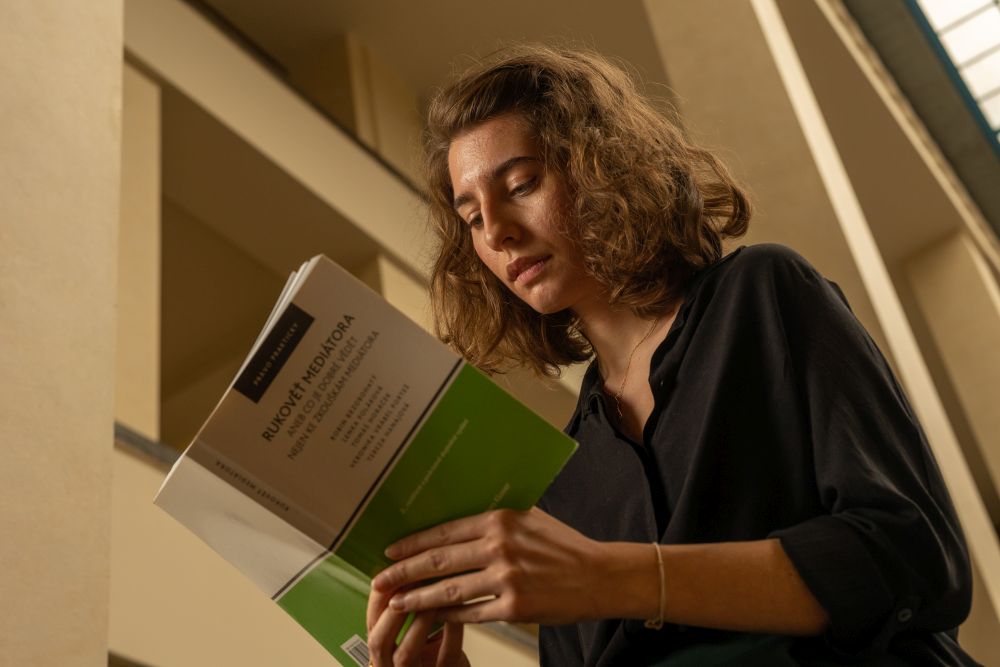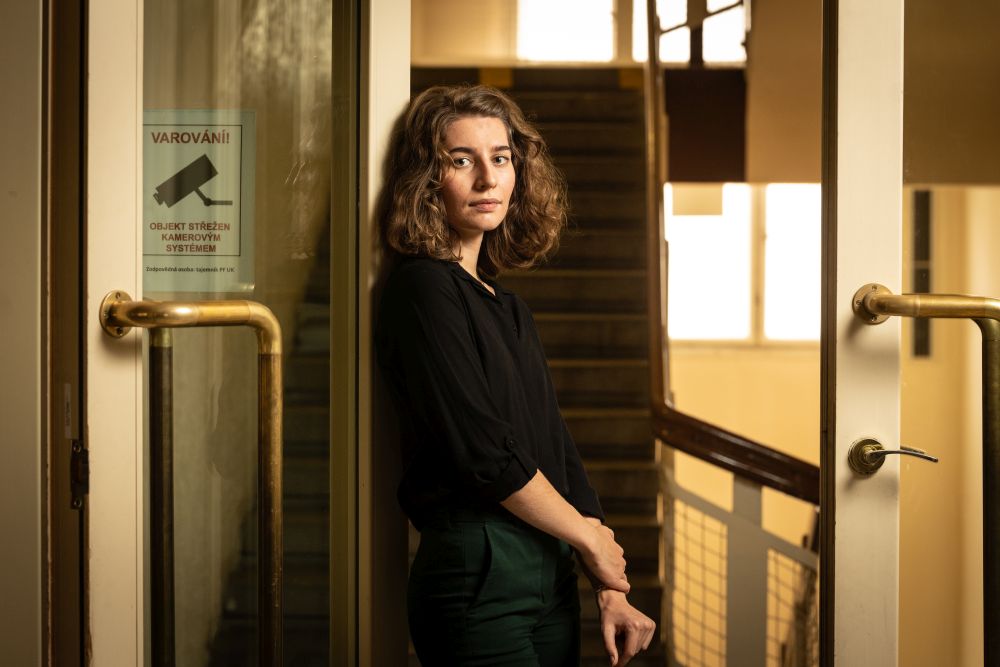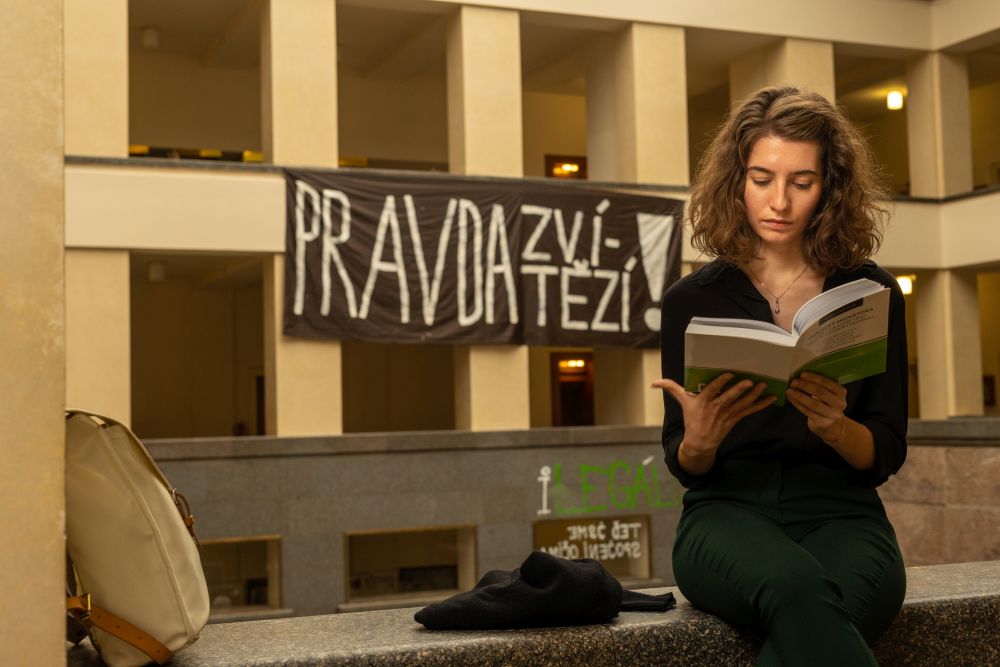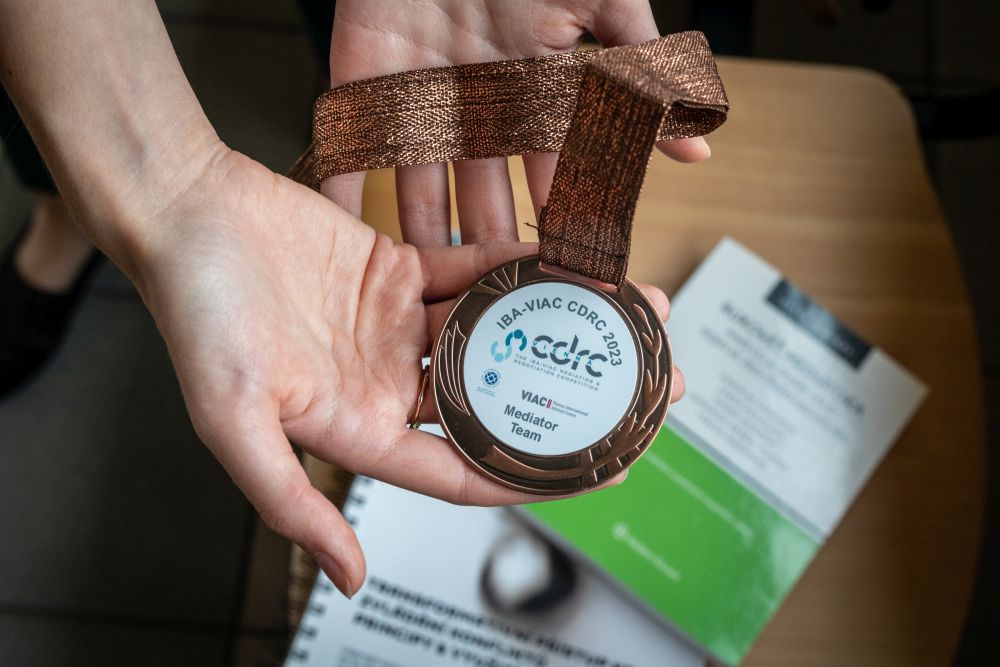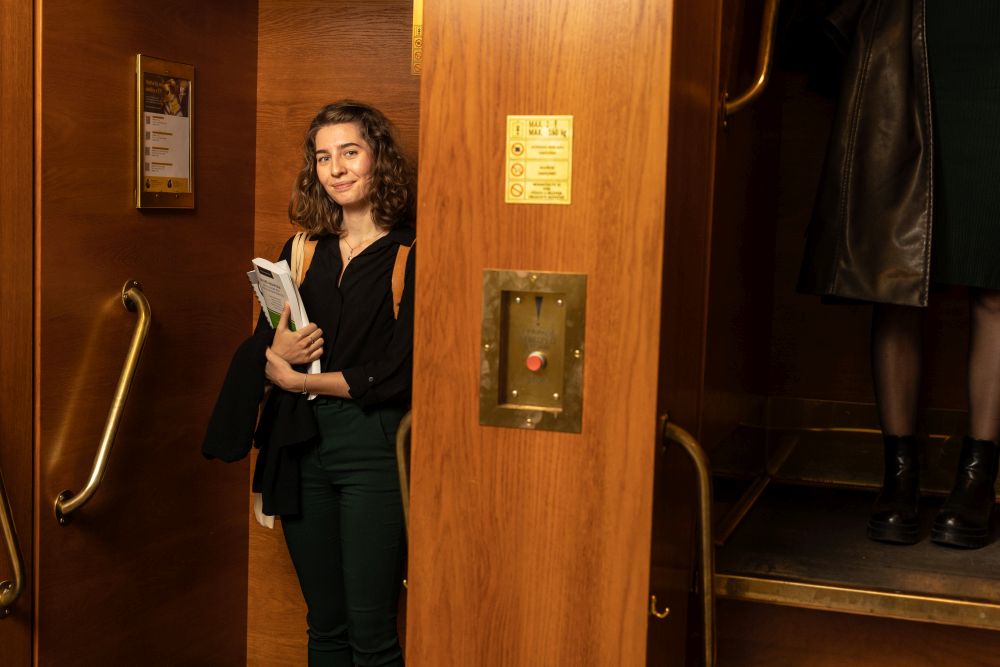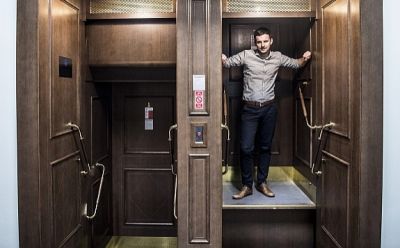When you seek a divorce in the U.S., it's likely that a court will recommend or even order you to try to resolve the decision through mediation first. Noemi Kotrlá, a student at the Faculty of Law of Charles University, has focused on the out-of-court resolution of disputes, whether family, employment, business or community, with the help of an impartial mediator. She is trying to popularise what remains a largely uncommon approach to conflict resolution in Czechia. She has also successfully defended the colours of Charles University at international student competitions. Last summer she won a bronze medal at the IBA-VIAC CDRC mediation and negotiation competition in Vienna.
In the Czech Republic it is probably not such a widely known term, so we should explain at the beginning what mediation is?
All conflicts do not have to be decided only by the court. There are many more ways in which conflict between people can be resolved and mediation is one of them. It is a process where an independent and impartial person - a mediator - helps and assists in communication between two parties who are trying to resolve a dispute. A mediator can also help people who have tried to come to an agreement on their own and failed.
Did you enrol at the Faculty of Law already knowing that this was the field you wanted to pursue, or did you discover it only once there?
For a long time I didn't know what mediation was. In the second year of my studies, I saw that among the courses offered there were some that dealt with mediation. When I read the course outlines, I was intrigued and thought I would like to learn more about it. I was really excited about it. And then I got swept up like by a Mexican wave (laughs).
What appeals to you personally about being a mediator?
What I like most about it is that a mediator allows people to make their own decisions about their own lives. That's not to say that the courts don't have their place and their purpose, they certainly do, and they are important, it's just that for certain types of disputes mediation is more appropriate. The individual parties to a dispute are the ones who know the most about the problem, in certain types of conflict only they can make the best decisions that will be sustainable in the future. It is an alternative that gives people the opportunity to come to an agreement even in difficult situations and take their own destiny into their own hands. That is what I like about it.
How is mediation taught? Do you try out the work of a mediator or mediator practically?
The faculty has several courses dedicated to mediation. Each one is put together a little differently. All of the courses first introduce the theory of facilitative mediation (there are several types of mediation, in addition to the facilitative that is taught at the faculty, there is also transformative and evaluative) and then students try it out in practice on simulated cases. The faculty also organizes a summer school of mediation, where participants then try out being mediators or play parties in a dispute and receive feedback. And then the faculty organises courses aimed directly at student competitions.
Mediation stands at the border of disciplines, it is not only about law, for example, knowledge of psychology or sociology is also important. Have you taken any courses in this direction?
I am very interested in psychology as a field, but I have not yet had the opportunity to participate in a more comprehensive larger training. I did a two-day course in crisis intervention, but that is a bit different. The most training I've gotten is from the trainings here at the college. There's a Student ADR Association at the faculty that I'm involved in, and I'm an instructor for the mediation trainings. Students who come to the training can find out what mediation is, try out the role of the mediators and the parties to the dispute. The trainings are open to students from other faculties and universities as well, because a good mediator can be a graduate of a faculty other than law school.
What skills and abilities should a good mediator have?
The key is to be able to listen. A mediator must be able to enter the parties into the conversation at the right moment, to catch the moment when communication starts to fray. This requires listening while filtering out one's own ideas of the ideal solution. The mediator should not make decisions for the parties, that is what the courts are for. They must remain impartial and independent not only of the parties but also of the outcome of the mediation. Mediation does not always end in a happy ending where the parties embrace and reconcile. Sometimes the result is a decision that they can't go on together. The most important thing is not that it is somehow the right or fair decision, but that it is the decision of the parties involved. The difficult thing about being a mediator is that you have to be able to connect to the parties, but at the same time you have to remain impartial.
What brought you to student mediation competitions?
I'm not the competitive type at all, I don't like to perform in front of people. I'm more of an introvert. When I got involved in the society, my colleagues started encouraging me to enter competitions as well. But I was more sceptical. Eventually they convinced me and I'm glad they did, even though it wasn't easy for me and it meant a huge step out of my comfort zone.
But you were successful in competitions. What did participating in them give you?
The competitions are attended by students from all over the world who are interested in mediation and negotiation. The judges are world-class professionals - mediators and lawyers. What fascinates me most about the competitions is the diversity. All the participants have some background in mediation or negotiation, but everyone has a slightly different perspective. The judges then give everyone individual feedback, which moves you along in a huge way. It makes you put even more effort into the training, trying to improve, not embarrass yourself. At the same time, it gives you a glimpse into the community and you see what all the different types of mediation are and how to do it. For me personally, I think what gave me the most is that it was only at the competition that I saw that I had improved and improved a lot in mediation. From the training sessions I felt that my development was stagnant and that I was making the same mistakes over and over again. But the competition environment somehow motivated me to apply everything I learned in theory to practice at the right moment.
Are you involved in mediation in your professional practice? Do you see your future in it?
I have, never had the opportunity to try mediation in practice. But in the future I would like to incorporate it into my work. Mediation as such is still difficult to make a living in our country. I know only a few people who do it "full time". It's more realistic to do it part-time, perhaps in addition to another job. But it is definitely a meaningful activity for me.
I read on the website of the Association of Mediators of the Czech Republic that in Western democracies mediation is used in 60-70% of employment, business, family or community disputes. What is the situation in the Czechia?
There is an established pattern - we have a dispute, we go to court. I think most of the population does not know what mediation is. But in some countries, for example in the USA, mediation is used much more. In some American states, for example, you have to go through mediation first before you can get a divorce. There is a need to spread awareness about mediation, which was one of the reasons why I started to conduct mediation training for students. I wanted as many of them as possible to find out what mediation is and try it. I am not saying that they all have to become mediators, but at least they will know that there is such a possibility and that they can use it themselves when they are dealing with a dispute.
| Noemi Kotrlá |
| Fifth-year student of the Master's degree in Law and Legal Studies at the Faculty of Law of Charles University. She has been involved in mediation for a long time and is an instructor of mediation trainings in the Student ADR Association. In the autumn of 2022, she participated in the INADR-SWPS University International Mediation Tournament in Poznan, Poland, where she won sixth place in the special category of Best Individual Mediator for her mediation performance. Last July she represented the faculty at the IBA-VIAC CDRC International Mediation and Negotiation Student Competition in Vienna. This time, her mediation performance took her all the way to the bronze medal. |


